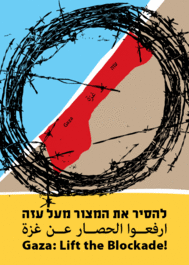Tag: UNRWA
-
Israel’s Disinformation Campaign Against the Gaza Freedom Flotilla
Freedom Flotilla | Witness Gaza FOR IMMEDIATE RELEASE For over four years, Israel has subjected the civilian population of Gaza to an increasingly severe blockade, resulting in a man-made humanitarian catastrophe of epic proportions. Earlier this month, John Ging, the Director of Operations of the UN Relief and Works Agency for Palestine Refugees (UNRWA) in…
-
DCI: Child blown to pieces, one maimed and two injured in drone attack
Defense for Children International On 7 January 2009, Husam Sobuh (11) decided to bring more food, blankets and clothes to the UNRWA school in Beit Lahiya, where he was taking refuge with his family. On his way, he met with his uncle Osama (36) and his two children, Huda (11) and Luai (9), who were…
-
CJPME: Canada to withdraw its funding to UNRWA
Canadians for Justice and Peace in the Middle East 21 January 2009 Last week, the government of Canada quietly announced it would discontinue its long-standing financial contributions to the United Nations Relief and Works Agency (UNRWA), and redirect the monies to strengthen the judicial system of the Palestinian Authority and other food assistance programs. The…

